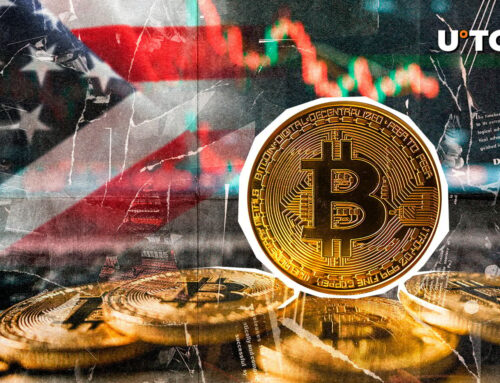If I Could Tell All Investors 1 Thing About the Stock Market Right Now, It Would Be This
April 6, 2025
Major stock indexes have taken a nasty tumble this week after President Donald Trump announced his latest tariff plans. Many countries are issuing retaliatory tariffs against the U.S. as well. The Nasdaq Composite (^IXIC -5.82%) swiftly fell into a bear market, as of this writing, while the S&P 500 (^GSPC -5.97%) inches closer by the hour.
Jerome Powell, chair of the Federal Reserve, warned in a speech on Friday that “tariffs are highly likely to generate at least a temporary rise in inflation.” He also noted that economic growth could slow, potentially leading to “elevated” levels of unemployment.
Economic experts are also sounding recession alarms. Analysts at J.P. Morgan revealed this week that they predict a 60% chance of a recession by the end of 2025, up significantly from the 40% prediction prior to Trump’s tariff announcement.
None of this is good news for Americans, but there’s still reason to be hopeful right now. If I could tell all investors one thing about the stock market, it’s this: Time is your best friend.

Image source: Getty Images.
The market has a flawless track record
Despite experiencing stomach-churning volatility in the past, the stock market has survived every single recession, crash, and bear market so far. Many of those downturns have happened in the relatively recent past, and investors who stayed in the market reaped the rewards.
In the early 2000s, for example, we saw the dot-com bubble burst and the resulting bear market (which would go on to become one of the longest bear markets in the S&P 500’s history). Just as stocks recovered, the market was hit by the Great Recession — the worst financial crisis since the Great Depression.
After several years of growth, we then faced the COVID-19 crash in 2020. The S&P 500 lost roughly one-third of its value in three weeks, becoming one of the fastest market crashes in history. However, since January 2000, the S&P 500 has still soared by 245%.
Time is your most valuable asset when it comes to surviving volatility. The average S&P 500 bear market lasts around 9.5 months, with extra-long bear markets (like the one following the dot-com bubble burst) lasting around two years.
While that can seem like an eternity in the moment, good economic times tend to far outlast the bad. The average S&P 500 bull market has lasted around three years, with the period of prosperity following the Great Recession lasting a staggering 11 years.
What should you do with your money right now?
With stock prices plunging further by the day, it can be tempting to pull your money out of the market or stop investing altogether. While that strategy makes sense on the surface, the market’s unpredictable nature could cause it to backfire.
The future may look bleak right now, but we don’t know for certain that a recession or bear market is coming. Case in point: During the COVID-19 crash in March 2020, many investors were bracing themselves for a Great Recession-level crisis.
However, nearly as quickly as the market crashed, it recovered. Between April 2020 and April 2021, the S&P 500 surged by nearly 63%. If you had sold your stocks as soon as the market began tumbling, you could have missed out on serious gains during the recovery period.
If stock prices don’t rebound and instead continue to nosedive, there’s a silver lining: You can invest at a steep discount. Stock prices have been eye-wateringly expensive in recent years, and while market corrections are tough to tolerate, they can also provide some relief for those still buying.
No matter what the market does in the coming weeks or months, continuing to invest is advantageous. If the market continues to fall, you can snag quality stocks on clearance. If prices rebound, you can take advantage of those gains by staying in the market.
This is also a tried-and-true approach by Warren Buffett. “[I]n the early 1980s, the time to buy stocks was when inflation raged and the economy was in the tank,” he wrote in a 2008 opinion piece for The New York Times. “In short, bad news is an investor’s best friend. It lets you buy a slice of America’s future at a marked-down price.”
Even seasoned investors are rattled by this market downturn, so nerves are normal right now. While you can’t control the market’s future, you can craft an investing strategy to make the best of this uncertainty.
Search
RECENT PRESS RELEASES
Related Post





